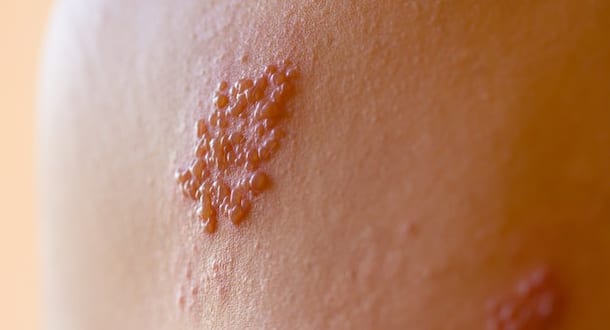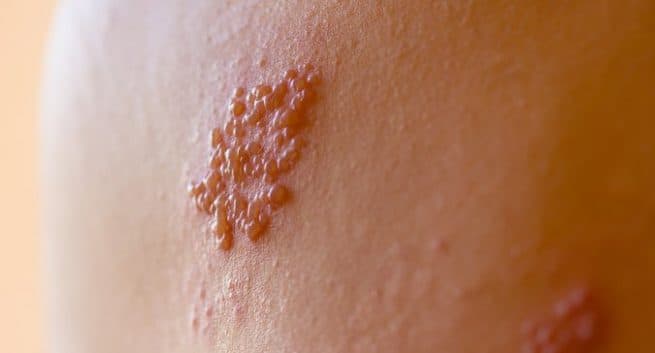The Importance Of Premarital Health Checkups
You may be preoccupied with your wedding planning and spending a fortune on your wedding attire, food and decor. Along with that, make sure you are enrolling for some health tests too.

[caption id="attachment_551037" align="alignnone" width="655"] Herpes is an infection caused by the human herpes simplex virus (HSV) that can enter the human body through various sites. The virus invades different sites such as the genitals or mouth by attacking the mucosal lining.
Herpes is an infection caused by the human herpes simplex virus (HSV) that can enter the human body through various sites. The virus invades different sites such as the genitals or mouth by attacking the mucosal lining.
The severity of the infection and the symptoms of the infection vary depending upon the site of the entry and immune resistance. The virus can be transmitted by close physical contact and thus, needs to be treated to prevent its spread. Once the virus enters the body, it starts multiplying in the primary contact area of the skin. It subsequently invades the nervous system, multiplies again, and goes dormant. In some cases, the virus lies dormant for years. However, in certain conditions such as trauma, emotional stress, etc., the virus can get activated, cause disease and produce viral particles that allow the infection to spread to other people. The disease symptoms are often severe in people with a weakened immune system, such as those with human immunodeficiency virus (HIV) or those who have undergone organ transplants. There is no cure available currently for the infection, although, some antiviral medicines provide relief from the symptoms of the infection.[/caption]
There are two types of the herpes simplex virus:
People infected with the virus may go through the following stages of infection:
In most cases, people suffering from a herpes infection do not show any significant signs and symptoms until several months later. And in some, the symptoms may appear occasionally within a few days of the viral attack. This is because, the virus can remain in a dormant state for a few months and may be activated following an illness.
Many people who encounter the virus for the first time may not develop any symptoms and in some, the infection may go unnoticed. Usually, the following symptoms may develop 2-3 weeks after the infection. The common signs and symptoms of a herpes infection are:
Causes
Caused by two strains of the herpes simplex virus, this condition affects the genitals, cervix, mouth, eyes, lips and different parts of the skin. The severity of infection and the treatment option are dependent on the factors causing it. As the virus can be transmitted from one person to other through close physical contact, it is recommended that the infected person avoid sex (especially if they suffer from genital herpes) and kissing (mouth sores) that may aid in the spread of the disease. Apart from this, the virus can be transmitted by:
| Risk factors | People at an increased risk |
| Age | Older people |
| Sex | Females |
| Body weight | Obese people |
| Smoking habit | Current or former smokers |
| Number of sexual partners | People with multiple sexual partners |
| Medical history | People with a history of sexually transmitted diseases (STDs) |
By following simple precautions, you can prevent a herpes infection. Some of the common tips to avoid this infection are:
Generally, the appearance of symptoms of the herpes simplex virus is typical and thus, there is no need to confirm the condition with diagnostic tests. However, in case your healthcare provider is uncertain, they may recommend a few lab tests such as:
There is no cure for the herpes simplex virus. The treatment options are aimed at relieving the pain and minimising the healing time. Antiviral drugs such as Famvir, Zovirax, and Valtrex form the first-line of medications that are prescribed to deal with the condition. Apart from this, following proper hygiene and sanitation; abstaining from sex, alcohol and smoking; and taking warm baths aid in the quick healing of the sores.
People with genital herpes can take the following measures to soothe the pain and deal with the condition:
Prognosis
Most people usually find the first outbreak to be the worst. However, the symptoms do not occur the same way for every affected person. In some people, the symptoms of the first outbreak are so mild that they don’t even realise that they have been infected. While some people usually have only one outbreak in life, others experience multiple outbreaks, especially during the first year of infection. However, the symptoms usually get less severe after each outbreak as the body keeps producing substances to fight off the virus. The outbreaks may eventually stop completely. People with herpes should talk with their doctor and follow their directions.
People with herpes should not feel alone or ashamed. Majority of the individuals contract STD at least once in their lifetime. Herpes, in fact, is an infection that can happen to anybody, as the virus easily spread by kissing or having sex.
Complications
Herpes rarely causes serious complications in healthy people. However, serious complications are often seen in people with long term illnesses or weak immune systems, and in unborn or newborn babies. Herpes can sometimes cause serious diseases such as meningitis (redness and swelling of the tissue covering the spinal cord and the brain) and encephalitis (redness and swelling of the brain).
People with genital herpes and open sores in the genital area are at an increased risk of contracting the human immunodeficiency virus (HIV). Cold sores can cause the following complications:
You may be preoccupied with your wedding planning and spending a fortune on your wedding attire, food and decor. Along with that, make sure you are enrolling for some health tests too.
A drug currently prescribed to treat a rare enzyme deficiency can help cells clear the herpes simplex viruses. Read on to know more.
Genital herpes is a condition that causes itching and discomfort in your genital area. But there are a few other conditions that have the same symptoms.
Sexually transmitted infections are usually manageable, but care should be taken to get proper and timely treatment. If ignored, they can result in life-threatening medical conditions.
Genital herpes is a sexually transmitted disease with no cure. But now a new study brings hope of an effective therapy that may be able to treat this condition. Read on to know more about this disease.
Know why pain during sex is bothering you and how to avoid it.
A team of scientists have uncovered the mechanism that allows the herpes virus to act in our bodies and opens new avenues for cure from the infections it causes.
Herpes virus causes contagious sores, most often around the mouth or on the genitals.
It can occur in any individual but mostly affects elderly and people with low immunity like diabetics, transplant patients and pregnant women
Tulsi could offer new hope in the treatment of herpes simplex infection,
HIV AIDS patients are commonly affected by oral thrush, psoriasis, dandruff, shingles + 6 other skin conditions and rashes, says Dr Rashmi Shetty.
Nanoparticles of gold can be utilised to zap deadly viruses according to researchers.
Tuberculosis, HIV/AIDS and other conditions when a mother can't breastfeed.
You thought herpes is an STD and you can't get it from a beauty salon -- what if we tell you, you are wrong!
Did you know TORCH Infection can cause spontaneous abortions, intrauterine fetal death and birth defects?
These sexually transmitted diseases rarely show any noticeable symptoms. Find out which ones are they.
Here's what you need to know about love bites or hickeys.
Yale-led study found a surprising link between having trouble in the poop department and the virus that causes genital herpes.
You may be preoccupied with your wedding planning and spending a fortune on your wedding attire, food and decor. Along with that, make sure you are enrolling for some health tests too.
A drug currently prescribed to treat a rare enzyme deficiency can help cells clear the herpes simplex viruses. Read on to know more.
Genital herpes is a condition that causes itching and discomfort in your genital area. But there are a few other conditions that have the same symptoms.
Sexually transmitted infections are usually manageable, but care should be taken to get proper and timely treatment. If ignored, they can result in life-threatening medical conditions.
Genital herpes is a sexually transmitted disease with no cure. But now a new study brings hope of an effective therapy that may be able to treat this condition. Read on to know more about this disease.
Know why pain during sex is bothering you and how to avoid it.
A team of scientists have uncovered the mechanism that allows the herpes virus to act in our bodies and opens new avenues for cure from the infections it causes.
Herpes virus causes contagious sores, most often around the mouth or on the genitals.
It can occur in any individual but mostly affects elderly and people with low immunity like diabetics, transplant patients and pregnant women
Tulsi could offer new hope in the treatment of herpes simplex infection,
HIV AIDS patients are commonly affected by oral thrush, psoriasis, dandruff, shingles + 6 other skin conditions and rashes, says Dr Rashmi Shetty.
Nanoparticles of gold can be utilised to zap deadly viruses according to researchers.
Tuberculosis, HIV/AIDS and other conditions when a mother can't breastfeed.
You thought herpes is an STD and you can't get it from a beauty salon -- what if we tell you, you are wrong!
Did you know TORCH Infection can cause spontaneous abortions, intrauterine fetal death and birth defects?
Yale-led study found a surprising link between having trouble in the poop department and the virus that causes genital herpes.
Tired of dealing with painful skin rashes and blisters caused by shingles or the herpes zoster virus? Give these natural remedies a try for some relief.
A study has found that contraceptive pills might actually be effective in fighting against herpes.
These sexually transmitted diseases rarely show any noticeable symptoms. Find out which ones are they.
Here's what you need to know about love bites or hickeys.
These eight skin diseases can spread rapidly via direct skin-to-skin contact and in some cases, can also be air-borne. You can protect yourself and others around you by watching out for these signs and symptoms.
Primary genital herpes is asymptomatic at first and only shows symptoms a week or so after the infection.
Suffering from an overly itchy scalp? Other than dandruff and a greasy scalp, it could be one of these four diseases.
Think you have an STD? Find out with this handy symptom checker.